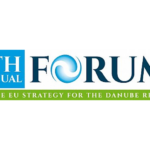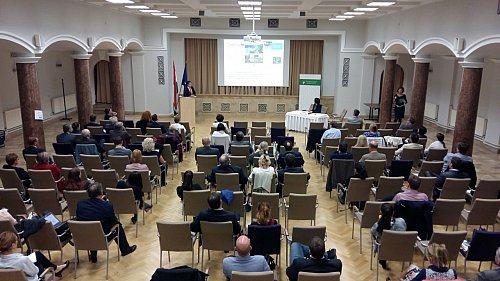EUSDR ENVIRONMENTAL PILLAR – STAKEHOLDER SEMINAR
EUSDR Environmental Pillar – Stakeholder Seminar
BUDAPEST, 17 October 2017 (Venue: Ministry of Agriculture)



In order to highlight the environmental related topics on the occasion of the EUSR Annual Forum the Hungarian PA6 (Biodiversity&Landscapes) Steering Group Members initiated the organization of a side event one day before the main event (in the afternoon on 17 October 2017). The seminar hosted by the Ministry of Agriculture and organized on its premises (1055 Budapest, Kossuth Lajos square 11).
This „EUSDR Environmental Pillar – Stakeholder Seminar” realized in cooperation with EUSDR PA4 (Water quality) and PA5 (Environmental risks) priority areas. The general scope of the event was the future perspectives in the field of water and environmental issues. The aim of the seminar was also to give a snap shot of the diversity of environmental issues in the Danube Region which are not against economic development, rather to offer basis for balanced and long term development.
The seminar was aiming at to call the attention to the importance of already ongoing joint cooperation in organizational and sector-specific level and discussed about future challenges where joint actions are needed to mitigate pressures that jeopardize the environment and natural values of the region.
The Stakeholder seminar opened by the Hungarian State Secretary in charge of environment and nature conservation and presentations of high representatives from ICPDR, the Carpathian Convention, Global Water Partnership was also expected beyond EUSDR. There were around 100 stakeholders who mostly also participated in the Annual Forum following this seminar and interested in the issues covered by the environmental pillar particularly water management.
PRESENTATIONS
Session 1: Joint cooperation and ongoing joint activities
- Synergies with Carpathian Convention (connections with EUSDR, synergies, water issues)– Eleonora Musco, Carpathian Convention Secretariat
- Danube Transnational Programme- Capitalisation process – Gusztáv Csomor, Danube Transnational Programme
- Georg Frank, DANUBEPARKS
- Miodrag Milovanovic, Jaroslav Černi Institute, Serbia
Session 2: Cooperation among sectors – integration of measures between sectors are needed
- Green economy: How many water is needed for the production of a pair of jeans? How to minimize water footprint? – Miklós Marton, Ministry of Agriculture, Hungary
- Integrated Drought Management Programme– an integrative approach – Sabina Bokal, Global Water Partnership CEE
- Forests and Water: water retentive forests, forests on flood plains– Csaba Mózes, Ministry of Agriculture, Hungary
- Sustainable agriculture in the Danube River Basin– Ádám Kovács, International Commission for the Protection of the Danube River
- Sustainable Flood Protection measures in the Danube basin – Gheorghe Constantin, Ministry of Waters and Forest, Romania
Session 3: Sign of nature – Where to act? – Future Challenges
- Climate extremes and challenges-Sándor Szalai, Szent István University
- Introduction of the current PA5 activities and focal topics – Károly Gombás, Ministry of Foreign Affairs and Trade, Hungary
- Fighting accidental pollution in the Danube River Basin– Ádám Kovács, International Commission for the Protection of the Danube River
- – Dániel Nagy, National Food Chain Safety Office of Hungary
- Flood protection education network in the Danube basik – Viktor Oroszi, Ministry of Foreign Affairs and Trade, Hungary
- Danube Sturgeon – a flagship project with holistic needs – Cristina Sandu, Institute of Biology Bucharest, Romanian Academy
- Challendges and pressures due to microplastics in the Danube watershed– Gábor Bordós, Wessling Hungary Ltd



